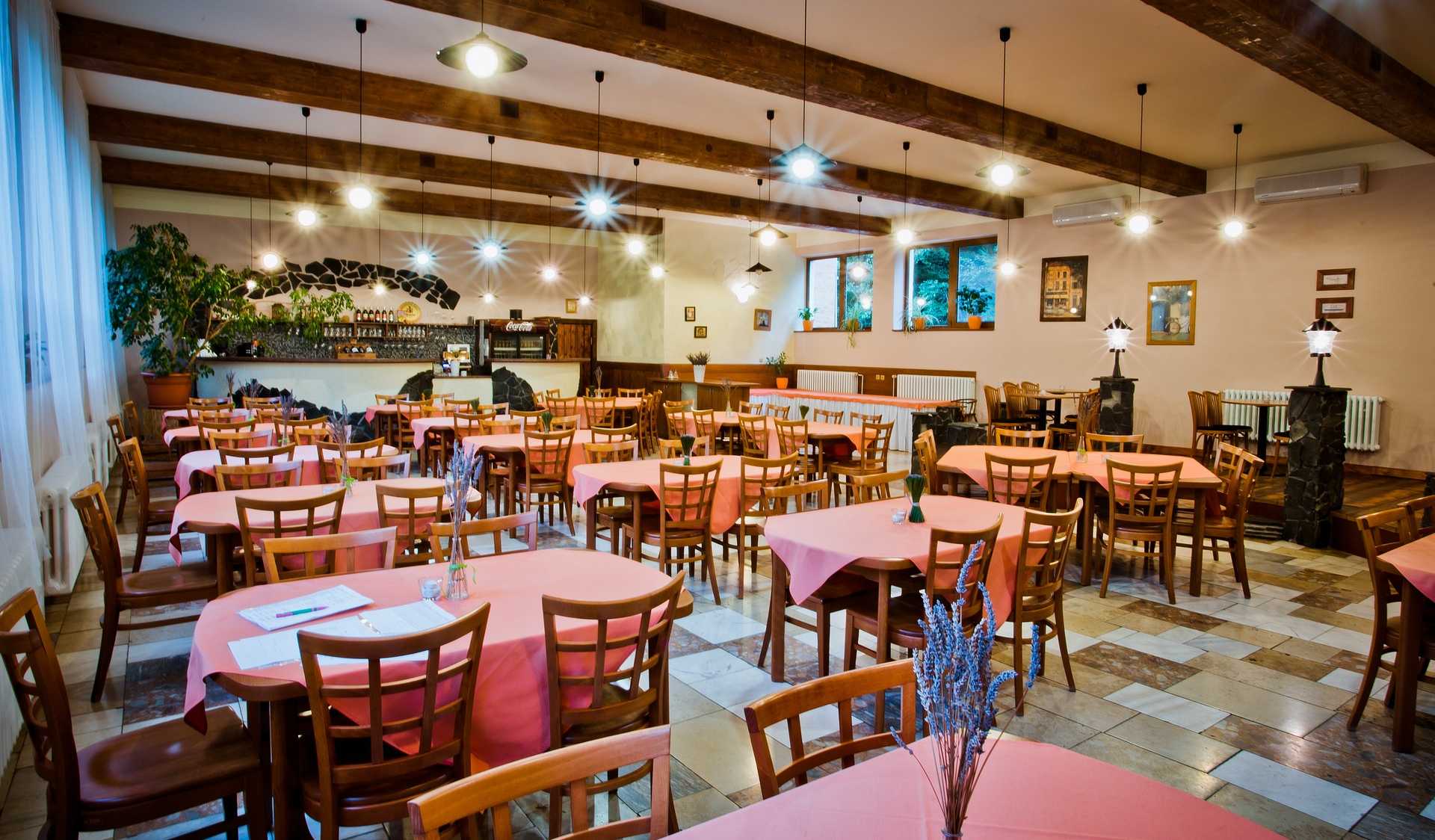Home Blogs Website Why does your restaurant need a website in today's digital dining landscape?
Posted By: Shriji Solutions
15 June, 2024

In today's digital age, customers are increasingly turning to the Internet to research restaurants before making a decision. A shocking 80% of people Use your smart phone to find restaurants, making a strong online presence vital to the success of your business. While third-party listing sites and social media can play a role, having your own website offers a unique set of benefits that can't be replicated elsewhere.
Here's why your restaurant should have its own website to get ahead in the competitive world of food:
1. Increased visibility and search engine dominance
Imagine a world where potential customers searching for a restaurant like yours can't find you online. This is the reality without a website. Search engines like Google prioritize well-designed websites with relevant content, pushing them to the top of search results. By including essential keywords related to your food, location, and specialties, your website becomes a beacon, attracting hungry customers who are actively looking for what you have to offer.
2. Showcase Your Brand and Make a Lasting Impression
Your website is your digital storefront, the first impression you make on potential customers. Go beyond simply listing your menu; Use high-quality photos and videos to showcase your restaurant's ambiance, signature dishes, and happy customers. Tell your story – What makes your restaurant special? Highlight your chefs, the locally sourced ingredients you use, or the family-friendly atmosphere you create. A well-crafted website allows you to control the narrative and create a strong brand identity that resonates with your target audience.
3. Essential information at your customers' fingertips
Frustration is a recipe for lost business. Don't force your customers to fumble for basic information. Your website should be a one-stop shop for everything a foodie needs. Include your address, phone number, opening hours and clear directions with maps integration. A user-friendly menu with attractive descriptions and mouth-watering photographs is a must. Consider including a virtual tour or 360-degree images to give potential customers a feel for the atmosphere of your restaurant.
4. Direct communication and building customer loyalty
Unlike third-party platforms, your website allows direct communication with your customers. Capture email addresses through signup forms to send targeted promotions, announce special events, and create a sense of community. Integrate a reservation system to allow diners to book tables directly through your website, streamlining the process and increasing convenience. Positive online reviews and testimonials can also be prominently displayed on your website, building trust with potential customers.
5. Promote Online Orders and Generate Additional Revenue
In today's fast-paced world, convenience is king. Many diners want the option to order takeout or delivery without picking up the phone. Having an online ordering system integrated into your website allows customers to browse your menu, customize their orders, and pay securely online. This not only increases revenue but also fulfills the increasing demand for digital convenience. Consider offering special online deals or promotions to encourage online ordering and increase sales.
6. A platform for special promotions and events
Your website is the perfect platform to highlight special offers, happy hour menus or upcoming events. Promote limited-time specials, advertise catering services, or announce live music nights – the possibilities are endless. Regularly updated content keeps your website fresh and engages existing customers, encouraging them to return for new experiences. You can also leverage your website to host contests or giveaways to generate excitement and brand awareness.
7. Valuable Customer Data and Business Insights
Many website builders offer analytics tools that provide valuable data on how customers interact with your site. Track which pages are viewed the most, which recipes generate the most interest and where your website traffic comes from. This data allows you to optimize your online presence, customize your menu offerings based on customer preferences, and make data-driven decisions to improve your business. For example, if you see an increase in traffic from a particular neighborhood, you can target online ad campaigns to that area.
8. Cost-effective marketing and long-term ROI
Compared to traditional advertising methods such as print ads or radio commercials, a website provides a far more cost-effective way to reach your target audience. Once your website is up and running, ongoing maintenance costs are relatively low. The long-term return on investment (ROI) can be significant, as a well-designed website attracts new customers, increases loyalty among existing customers and ultimately increases sales. Track conversion rates – the percentage of website visitors who become paying customers – to measure the effectiveness of your website and identify areas for improvement.
9. Stay Ahead of the Competition (continued)
In a crowded marketplace, it's important to stand out. While your competitors may rely solely on third-party listing sites and social media, having your own website gives you complete control over your online presence. You can craft your message, showcase your unique selling points, and create a digital experience that sets you apart.
A well-organized website allows you to adapt to changing trends and customer preferences. Highlight seasonal menus, promote special dietary options, or demonstrate your commitment to sustainability – all on your own terms. This flexibility enables you to stay ahead of the curve and attract customers who value the unique qualities your restaurant offers.
10. Build brand loyalty and foster community
Your website is a powerful tool for building lasting relationships with your customers. Go beyond simply displaying menus; create a blog section with engaging content related to food, recipes, or local events. Share your chef's culinary inspirations, post behind-the-scenes glimpses of your restaurant, or feature customer stories. It fosters a sense of community and encourages customers to engage with your brand on a deeper level.
Beyond the Basics: Optimizing Your Restaurant Website
Having a website is a great first step, but optimization is key to maximizing its potential. Here are some additional tips to ensure the success of your website:
- Mobile-friendliness is non-negotiable: In today's mobile-first world, a website that is not optimized for smart phones and tablets will quickly lose visitors. Make sure your website has a responsive design that seamlessly adapts to any device.
- Prioritize User Experience (UX): Make your website easy to navigate. Clear menus, intuitive design, and fast loading times are important for a positive user experience. Visitors should be able to find the information they need quickly and easily.
- Adopt high-quality visuals: People eat with their eyes first. Invest in professional photography that showcases your food in its most attractive light. Include panoramic views of your restaurant environment to create a desire to dine.
- Content is king: Regularly updated content keeps your website fresh and attracting visitors. Blog posts, recipes, special event announcements, and even short video clips can contribute to a dynamic and engaging website.
- Embrace Social Media Integration: Link your website to your social media channels to create a cohesive online presence. Encourage visitors to follow you on social media to share your content and stay updated on the latest happenings at your restaurant.
- SEO is your friend: Search engine optimization (SEO) helps your website rank higher in search results. Research relevant keywords and incorporate them naturally into your website content. Optimize page titles, meta descriptions, and image alt tags to improve search engine visibility.
Conclusion: Your Website – a Powerful Tool for Restaurant Success
In today's digital landscape, a website is no longer a luxury for restaurants; this is a necessity. By following these tips and taking advantage of the many benefits a website offers, you can establish a strong online presence, attract new customers, build brand loyalty and ultimately drive sales for your restaurant. Remember, your website is a dynamic tool that can grow along with your business. Constantly monitor user behavior, gather feedback, and adapt your content and offerings to meet the constantly changing needs of your customers. With dedication and commitment to excellence, your website can become a powerful asset in your restaurant's success story.
To get a website that perfectly reflects the unique character of your restaurant and caters to your target audience, consider partnering with a reputable web development agency like Shriji Solutions. They can provide expert guidance on design, functionality and ongoing maintenance, ensuring that your website remains a valuable asset for years to come. Do thorough research to find an agency that fits your vision, budget, and technical needs.
By investing in a well-designed and strategically optimized website, you are taking an important step toward securing your restaurant's place in the competitive digital dining landscape.

